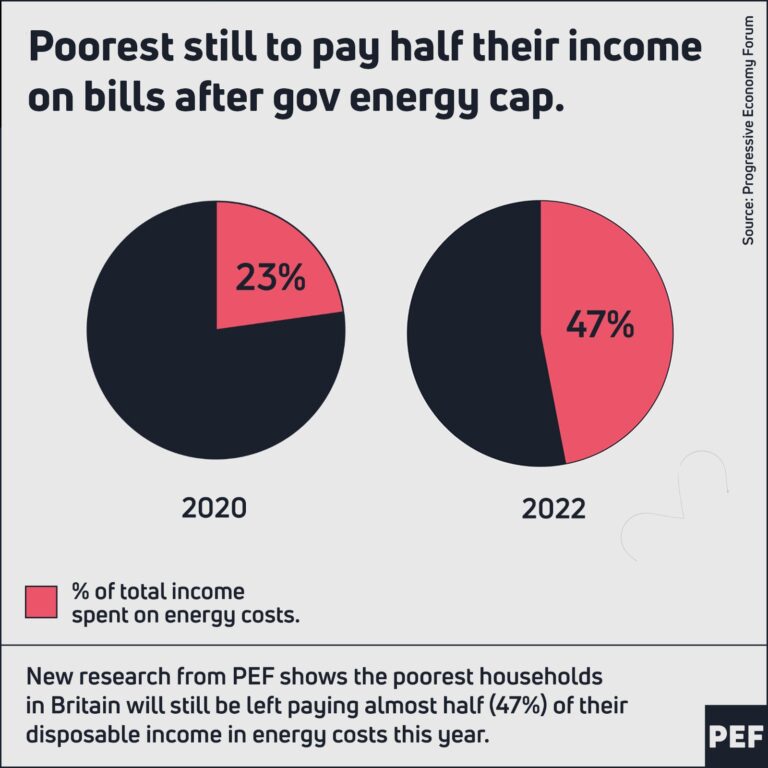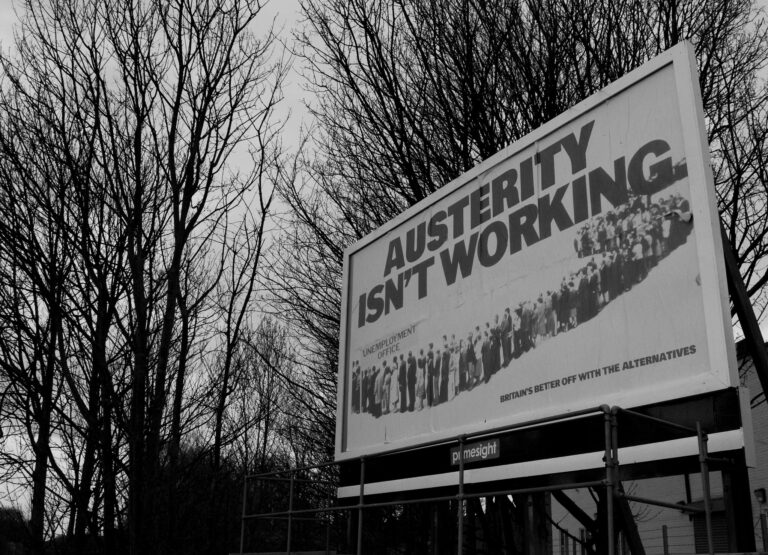Council Member Josh Ryan-Collins:
This week’s budget appeared at first to be seismic shift away from conservative economic orthodoxy by the government. Alongside a further major expansion in borrowing to support jobs and incomes over the next six months, the chancellor adopted the previous left-wing Labour party’s policy of a major rise in corporation tax (from 19% to 25% of profits) to close a record peacetime budget deficit.
But as the dust has settled and the numbers interrogated, the budget looks rather less radical.
Firstly, it cannot be described as a rejection of austerity. The budget contained no explicit additional resources beyond the coming financial year for public services to deal with the legacy of the pandemic. Rather, as pointed out by the government’s own spending watchdog, the Office of Budget Responsibility (OBR), it involved an additional £4bn spending cut, alongside £11bn previously announced, beyond next year. For the most vulnerable, the proposed £20 cut in universal credit remains, even if pushed back to September. The freezing of income tax thresholds will also hurt lower paid workers, assuming wages do rise.
Annual revaccinations, ongoing test and trace capacity, a huge NHS catch up program on thousands of missed operations, and rising unemployment bills will all be somehow funded on pre-pandemic spending plans. Meanwhile, NHS workers can look forward to a miserly 1% pay rise in return for their heroic pandemic efforts.
Secondly, the budget was singularly lacking in ambition when it came to the government’s role in creating a sustainable, inclusive and investment-led recovery.
There was no mention of investment in social care, a sector that is badly organised, extremely low paid and clearly vital in improving the resilience of an ageing population and economy to future pandemic-type shocks.
There was no new green stimulus despite the UK facing a £100bn funding gap to reach its net-zero by 2050 target and despite its hosting of the global COP26 climate change summit this November. Neither was there any major program to help young people find work. Both the latter two challenges could have been tackled with green jobs and apprenticeships program focused on renewable energy and environmental conservation.
Meanwhile, the new National Infrastructure Bank will be capitalised with just £12bn (equivalent to just 0.5% of GDP) and again, be heavily reliant on private sector co-investment.
Indeed, it appears the government may have abandoned industrial policy altogether, shutting down the Industrial Strategy Council lead by Andy Haldane and moving industrial policy out of BEIS and in to HMT.
Reverting to economic orthodoxy
Instead, the Treasury is reverting to free-market economic orthodoxy, relying on business and the housing market to do the heavy lifting.
A 130% ‘super deduction’ tax break for capital investment by businesses in machinery and plant was the key pro-growth policy announcement. Whilst it makes sense to reduce tax on productive investment, it is highly questionable whether the majority of British firms believe there is sufficient demand in the economy for major new capital investment outlays. The OBR is predicting not, forecasting a return to anaemic growth of just 1.7% in 2023, following a boom in 2022.
“The Treasury is reverting to free-market economic orthodoxy, relying on business and the housing market to do the heavy lifting.”
The policy may bring forward some existing planned capital spending but is unlikely to create the structural shift in investment the economy needs. The exception may be those firms already doing rather well in pandemic conditions. Amazon, for example, has racked up record profits over the past nine months as physical retail has collapsed and may use the supertax break to wipe out its UK tax bill completely.
The corporate tax profits hike is a sensible policy. However, its timing — not being introduced to 2023 — is suspect and will likely mean it is subject to ferocious counter lobbying if the economy improves. If businesses are to be taxed, a more sensible approach would have been a phased in rise in corporate tax starting immediately, accompanied by a windfall tax on those companies — like Big Tech, Private Equity and the Supermarkets — that have done so well out of the pandemic.
On housing, the budget was an opportunity to push forward a big capital investment in public housing and retrofit of existing stock and rethink the country’s highly regressive property taxation system. Reducing property tax for the poorest would be a fair way of stimulating stagnating demand.
Instead, the government extended the stamp duty tax cut on home purchase into the summer and announced it will guarantee 95% mortgages. These are expensive policies that reveal the Treasury remains fixated on the idea that ever-rising house prices are the best way to stimulate the economy and private sector house building. This debt- and consumption-lead economic growth model is inefficient, leads to greater financial fragility as well as increasing inequality as more people are priced out of the housing market.
Meanwhile, there was no sign of any reform of property taxation, nor even a commitment to raise capital gains and remove exclusions as had been rumoured.
In summary, whilst the extension of government support to the Autumn should be welcomed and will help the country avoid a much more severe recession, this Budget was not the economic reset the country needed. It will do little to stimulate a sustainable recovery and help Britain on to a more progressive economic trajectory. Now was surely the perfect time to shift the focus of taxation on to economic rents and away from labour. Instead, it is a budget that mainly favours the rentier sectors already doing well — Big Tech, banks, developers, homeowners — at the expense of the public sector, lower paid workers and renters.UCL IIPP Blog
This blog first appeared on the blog for the UCL Institute for Innovation and Public Purpose
Photo credit








